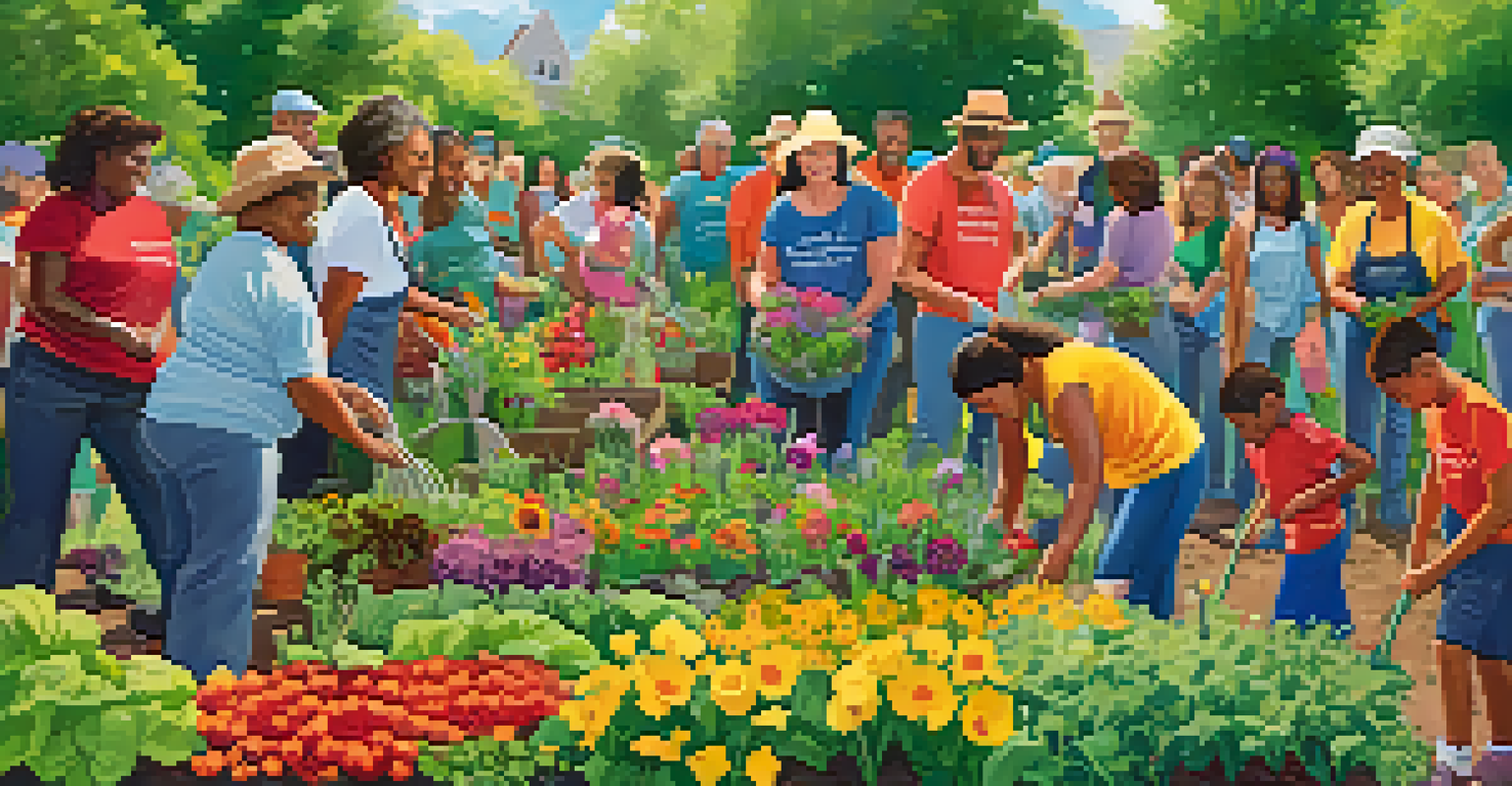Developing Resilience Through Positive Relationships

Understanding Resilience and Its Importance
Resilience is the capacity to recover quickly from difficulties. Think of it like a rubber band that stretches but eventually snaps back into shape. In our fast-paced lives, resilience helps us navigate challenges, whether personal or professional.
Resilience is not a measure of how far you can go, but how well you bounce back after hitting the ground.
Having resilience means you can face setbacks without losing hope or motivation. It doesn’t mean you won’t feel the impact of adversity, but rather that you’ll find ways to cope and bounce back. This is where the importance of relationships comes into play.
Positive relationships provide emotional support, which is crucial for building resilience. By connecting with others, we gain perspective and strength, helping us tackle life’s hurdles more effectively.
The Role of Positive Relationships in Resilience
Positive relationships act as a buffer against stress and adversity. When faced with challenges, having someone to lean on can make all the difference. Think of it as having a safety net that catches you when you fall.

These supportive connections help us to feel understood and accepted. Just as a gardener nurtures plants to help them grow, positive relationships promote personal growth and resilience. They encourage us to push through tough times.
Resilience Rests on Relationships
Strong, positive relationships provide essential support that enhances our ability to recover from life's challenges.
Moreover, these relationships can help us develop coping strategies. Through conversations and shared experiences, we learn new ways to handle stress, which strengthens our resilience over time.
Building Strong Relationships for Resilience
Building strong relationships starts with open communication. Sharing your thoughts and feelings fosters trust and strengthens bonds, much like adding bricks to a wall to make it sturdier. The more you communicate, the more resilient your relationship becomes.
The greatest glory in living lies not in never falling, but in rising every time we fall.
Another essential aspect is being present for others. Showing empathy and support reinforces the connection, making both parties feel valued. Just as a reliable friend shows up during tough times, being that friend is crucial for resilience.
Finally, nurturing shared experiences can deepen relationships. Whether it's through shared hobbies or simply spending quality time together, these moments create lasting memories and a stronger foundation for resilience.
Empathy: A Key Ingredient in Resilient Relationships
Empathy plays a vital role in fostering positive relationships. It allows us to understand and share the feelings of others, creating a deeper connection. Imagine walking a mile in someone else's shoes; this perspective helps us support our friends more effectively.
When we practice empathy, we become more attuned to the emotional needs of those around us. This attentiveness can strengthen our bonds, making us more resilient as a group. Just like a team working together can achieve more than individuals alone, empathy enhances our collective resilience.
Empathy Strengthens Connections
Practicing empathy fosters deeper bonds, allowing us to understand and support one another more effectively during tough times.
Moreover, empathetic relationships encourage vulnerability. When we feel safe to express our struggles, we can lean on each other for support, ultimately leading to greater resilience in facing life's challenges.
The Impact of Community on Individual Resilience
Being part of a community can significantly enhance personal resilience. Communities provide a sense of belonging and shared identity, much like being a member of a team. This support network can help individuals navigate life's ups and downs more effectively.
Within a community, individuals can share resources, experiences, and encouragement. This collective strength can make a real difference during challenging times. Just as a tree stands taller and stronger among a grove, we can thrive when supported by those around us.
Additionally, communities often foster environments of positivity and growth. When surrounded by encouraging peers, individuals are more likely to develop resilience and face challenges head-on, transforming adversity into opportunity.
Practicing Gratitude in Relationships
Gratitude is a powerful tool in nurturing relationships and enhancing resilience. By expressing appreciation for the people in our lives, we strengthen our bonds and create a positive atmosphere. Think of gratitude as sunshine that helps relationships bloom.
When we acknowledge the support we've received, we not only uplift others but also reinforce our own resilience. Gratitude helps us focus on the positive aspects of our connections, making it easier to weather life's storms together.
Gratitude Fuels Positive Growth
Expressing gratitude nurtures relationships and shifts our focus to the positive aspects of our connections, reinforcing resilience.
Moreover, practicing gratitude can shift our mindset. Instead of dwelling on difficulties, we learn to appreciate the strength we draw from our relationships, creating a cycle of positivity that fosters resilience.
Conclusion: Cultivating Resilience Through Connections
In conclusion, developing resilience through positive relationships is crucial for navigating life's challenges. The support and understanding we gain from our connections can transform our ability to cope with adversity. Just as a sturdy bridge can withstand strong winds, resilient relationships help us endure life's storms.
By fostering empathy, practicing gratitude, and building strong communities, we can enhance our resilience and that of those around us. Remember, resilience isn't just an individual journey; it's a collective effort.

Ultimately, nurturing these connections empowers us to face challenges with confidence and hope, reminding us that we are never alone in our struggles.